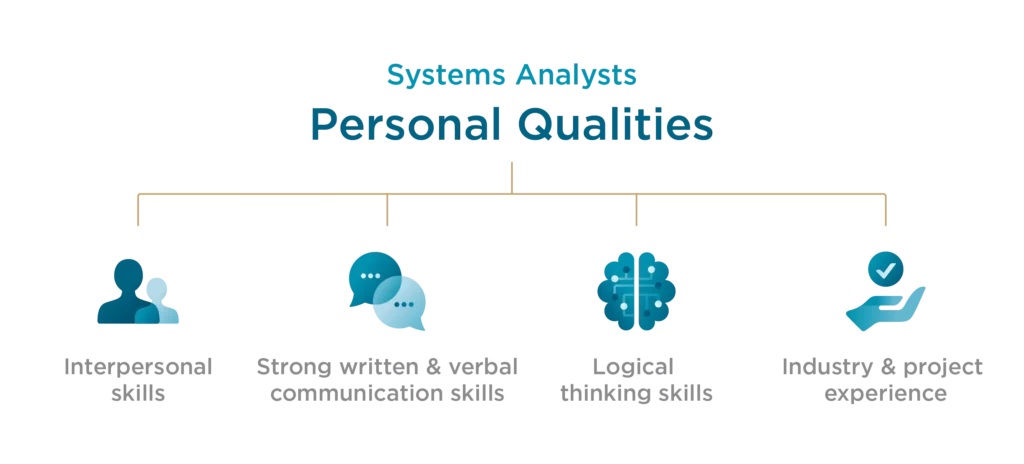
How Systems Analysts Hold Projects Together?
Should I become a programmer, systems analyst, or project manager?
Finding the right career path is a unique journey for all of us. Joanne Lin, a systems analyst (SA) at Cloud Interactive, started her career as a programmer before becoming an SA eight years ago.
“I wanted to become a software developer while I was studying for my bachelor’s degree in computer science. I was so attracted to JavaScript,” she remembers. But sometimes, opportunity comes when you least expect it. While working as a programmer at one of the largest privately-owned banks in Taiwan, she got the chance to transition to an SA role within the company. “It seemed like a great opportunity, and of course, it wasn’t an easy career to get into without experience,” says Joanne. “ But my experience as a programmer really helped me succeed in my role as a systems analyst.”
What do systems analysts do?
“A systems analyst is the person responsible for studying the problems and needs of an organization to determining how to best manage, improve, and develop business systems,” Joanne explains.
Not many people know exactly what the SA job entails—or understand the immense value SAs provide. Some companies assign one person both the project manager (PM) and SA roles on a given project. However, the SA role is unique. Give it the attention and resources it deserves, and it has the potential to add singular value to your project.
So what can SAs do that others can’t? The answer lies in their unique position within the web of relationships that surrounds each project (and largely determines its success or failure). The SA acts as a liaison between internal and external clients and stakeholders (including colleagues and developers) throughout the development process.
By ensuring all stakeholders’ goals, needs, and feedback are taken into account, the SA ensures that project deliverables provide effective solutions to organizational problems. For this reason, SAs are responsible for preparing the proposal that sets every project in motion.
According to Joanne, five tasks typically performed by SAs include:
- Gathering, analyzing, and validating information
- Defining requirements and prototypes for new systems
- Evaluating alternatives and prioritizing requirements
- Developing user-interface dialogs
- Examining the information needs of end-users to enhance system goals
SAs also play an essential role in mitigating risk. “By the time a risk actually occurs on a project, it’s too late to do anything about it,” says Joanne. That’s why it’s crucial for SAs to plan for risks from the beginning and revisit risk assessments throughout the project.
Why is a systems analyst so important to each project?
Put simply, the SA is what holds the project together.
The complex interactions of customers, IT professionals, and stakeholders make systems development very much a team effort. SAs liaise between all relevant individuals to develop information systems capable of meeting business requirements.
“A systems analyst should be able to communicate clearly and effectively with others to establish good relationships with clients early in the project and maintain them throughout the project,” says Joanne.
Without an effective SA, there won’t be effective systems development. When old systems can’t be upgraded, and new systems can’t be created, organizational growth may grind to a halt.
What personal qualities are helpful for systems analysts?
Apart from technical skills, Joanne lists several personal traits she thinks SAs need to be effective:

- Interpersonal skills: SAs must be able to work with various people and be able to work on a team. “You should be an assertive person,” she says.
- Strong written & verbal communication skills: “Communication skills are the most important skills for an SA,” Joanne emphasized. To mediate between IT developers and management, SAs must be able to communicate effectively with all the stakeholders that they work with and work for.
- Logical thinking skills: It’s important to use logic and reasoning to identify the strengths and weaknesses of alternative solutions, conclusions, and approaches to problems.
- Industry & project experience: To succeed in the SA role, you usually need a degree in a technical or IT subject or experience from a related position. This helps you solve problems faster and smarter.
“It’s very important to get relevant IT-related work experience,” Joanne says. Analysts are continuous problem solvers at both the project and the organizational level, and they put their analytical skills to the test regularly. However, it’s tough for an SA to identify potential solutions without plenty of industry experience.
“At Cloud Interactive, we share information and experiences with the team and help each other grow as individuals,” says Joanne.
At Cloud Interactive, our SAs think and act like business partners to our clients, building lasting positive relationships with clients across a wide range of industries. Our highly skilled SAs allow us to provide clients with helpful Implementation Planning Checklists like our Analyze Checklist, Design Checklist, Build Checklist, Test Checklist, Deploy Checklist, and Monitor Checklist, which helps validate performance.
“Companies should have Standard Operating Procedures (SOPs) in place to ensure that services and products are delivered consistently every time,” says Joanne, “We do this very well at Cloud Interactive.” The SAs at Cloud Interactive provide clients with clear, detailed plans at all stages of project implementation to minimize the likelihood and impact of risks.
“Working at Cloud Interactive, I’m able to get involved in multiple projects, accumulating experience across industries to help different clients,” says Joanne. “I am extremely honored to be part of such a great team.”
Cloud Interactive’s comprehensive team is composed of design, development, and analytics professionals with diverse project experiences that help your business find the best solution. Contact us now to hear our professional tips!
By Cloud Interactive
Meet the masterminds behind the curtain at Cloud Interactive. We're not just software developers - we're also a content crew fuelled by caffeine and a thirst for knowledge. We translate tech jargon into plain English, dissect industry trends, and craft helpful tips that are informative and engaging. So, buckle up and join us on a journey through the ever-evolving and exciting world of technology!


